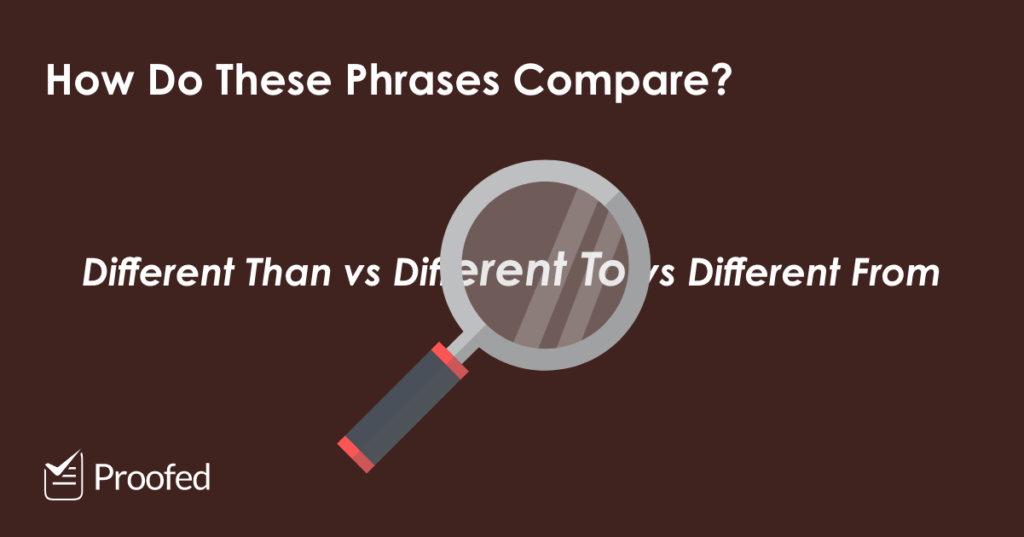Have you ever noticed that American English is different than British English? But wait! Is that last sentence written correctly? Should it be “different from” or “different to”? We’re asked this question often here at Proofreading Towers, so we’ve prepared a quick guide to help you with your work.
Different Options
“Than,” “to,” and “from” can all be used as prepositions. They specify a relationship between words in a sentence. When they follow the word “different,” for example, all these terms suggest a comparison between two things that aren’t alike. For example, we could say:
Apples are different than oranges.
Here, we’re simply saying that apples and oranges are distinct from one another. But we could also write this sentence using “to” or “from”:
Apples are different to oranges.
Apples are different from oranges.
Each sentence here means the same, so most of the time these terms are interchangeable. But only “from” and “than” are standard in US English. For more on the regional differences, check out our advice below.
Regional Differences
The biggest difference between these terms is between “different than” (standard in American English) and “different to” (standard in British English). Meanwhile, “different from” is common in both dialects.
Generally, then, you’ll want to avoid “different to” in your writing. But either “than” or “from” will be fine if you’re writing for US-based readers.
If you do use “different to” or “different than,” though, remember they may be non-standard in certain parts of the world (as illustrated below).
|
Phrase |
American English |
British English |
|
Different than… |
✓ |
✗ |
|
Different from… |
✓ |
✓ |
|
Different to… |
✗ |
✓ |
|
✓ = Standard, ✗ = Non-standard |
Summary: Different Than, To, or From?
You can use “than,” “to,” or “from” after the word “different” to make a comparison. In this context, each word does the same thing (i.e., link two things that are being compared).
Find this useful?
Subscribe to our newsletter and get writing tips from our editors straight to your inbox.
However, “different than” is more common than “different to” in US English, and “different from” is more common than either in all dialects.
As a result, we suggest using “different from” or “different than” for US English. But you may want to favor “different from” if you need your writing to read smoothly for people from outside the USA as well.
